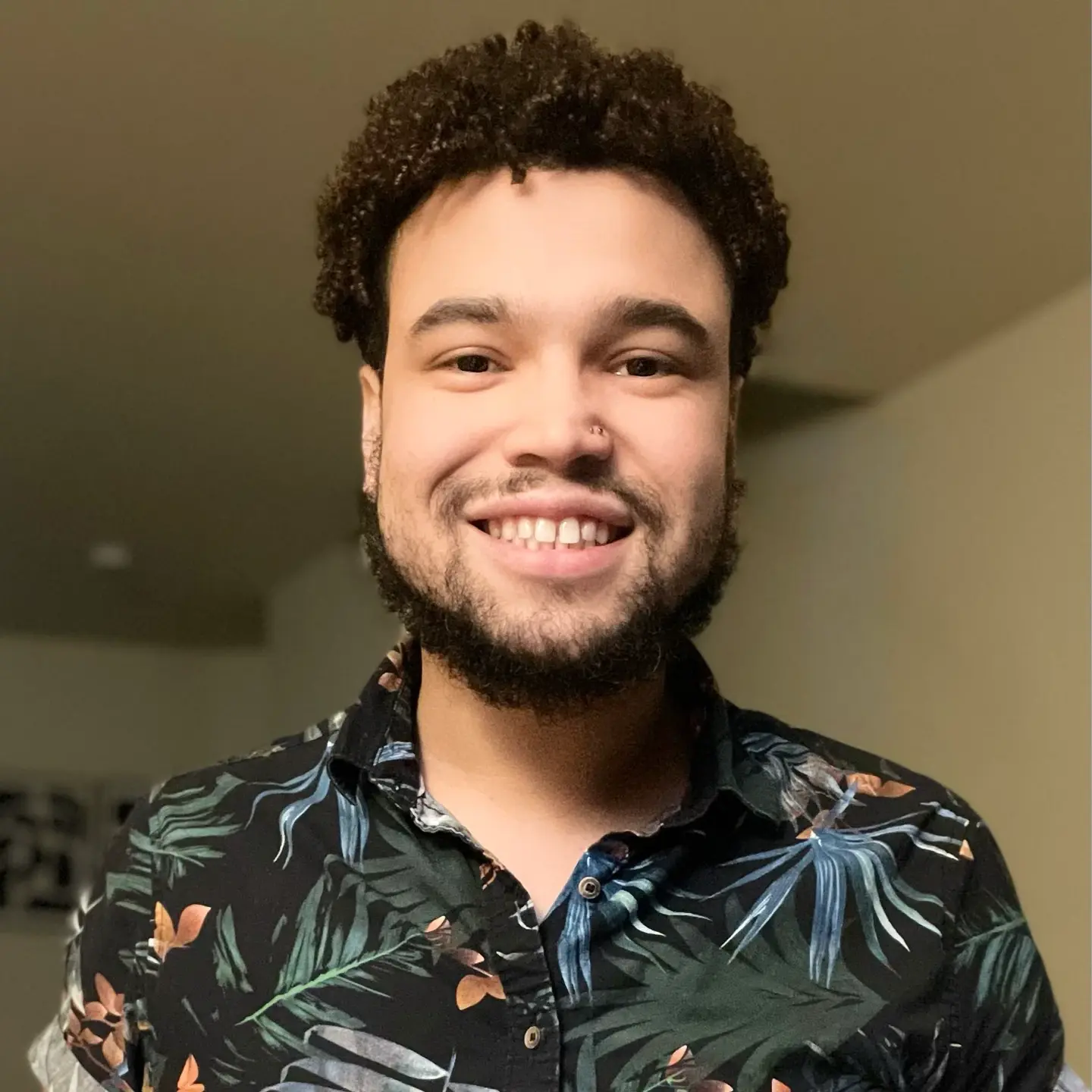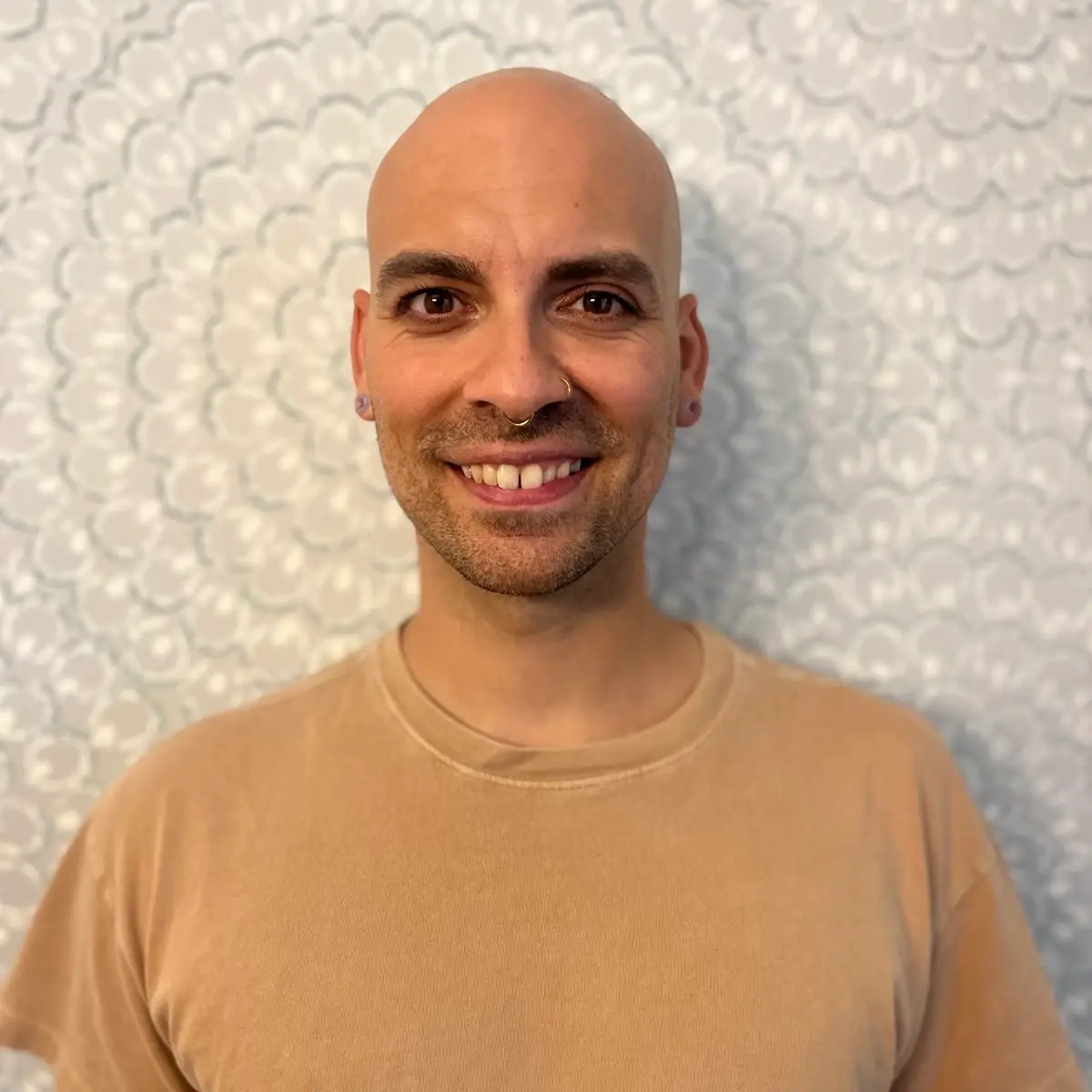About us
Heartset Training Center was founded in 2024 by two social workers who didn’t expect to find themselves at the front of the room. We’ve learned that speaking with so many different communities of people who share the goal of ending homelessness is deeply rewarding. We are queer and black and white and latinx, and we’re committed to bringing concepts of justice into the care that we offer to people experiencing stigma and marginalization. We draw from our experiences providing care to these populations in mental health, co-occurring disorders, substance use, and housing settings and we hold those doing this work in very high regard.
Together, we have facilitated 500+ training and technical assistance sessions with various Continuum of Care partners and supportive housing organizations across the United States. We have also delivered conference presentations at national and local conferences such as Putting Care at the Center, Homes Within Reach, National Association of Case Managers, the CSH Supportive Housing Summit, and the Zarrow Mental Health Symposium.
Our Mission
Heartset Training Center believes the work of ending homelessness is inseparable from the larger project of ending white supremacy. We hope to challenge stigma by facilitating critical and structural analyses of the power dynamics of care work, examining the ways our care reflects and reinforces the harmful societal power dynamics that led to the need for our services in the first place. We want to inspire helpers and organizations to close the gap between ourselves, and those in need of support. Our aim is to facilitate the mindset, skill set, and perhaps most importantly, the heartset necessary to do the relational work that is required of helpers seeking to end homelessness.
Leading with Heartset
Training for helpers is a regulated and routine part of care work in the homelessness and behavioral health systems. Helpers are accustomed to attending retreats, conferences, and in-service training days in order to build expert knowledge and skill application to achieve the best outcomes in their setting. Because service provision can feel like a thankless and undervalued profession, it may be assumed that if someone is willing to perform care labor, they must have a great deal of compassion and unconditional positive regard for the people they serve.
However, the pervasive nature of stigma in dominant culture and the unavoidable impact of vicarious traumatization can frequently lead to unconscious bias and broken therapeutic alliances. Without the therapeutic alliance, healing and change possibilities are remote. In fact, the skill set of the helper may be less important than their mindset, or their attitude toward the work and the people they serve. Even more, we believe that a helper’s heartset, their ability to tap into collective well-being, their emotional landscape, and the sense of meaning that care work can provide, are the foundation necessary for their skill set to thrive.
Defining the Helper
Heartset Training Center sessions are designed to support "helpers"—but who are our helpers, and why do we use this term? At Heartset Training Center, we consider anyone involved in healing, clinical, or social service work to be a helper. Many of our training programs are geared toward those working in homelessness and substance use settings, including social workers, physicians, counselors, leaders, harm reductionists, activists, educators, peers, neighbors, volunteers, and anyone else who deeply cares for those around them.
Our use of the term "helper" is a recent shift for us, evolving from the more traditional term "helping professional." In alignment with Heartset Training Center’s commitment to trauma-informed care, we believe that adopting the term "helper" is a small but meaningful way to reduce the inherent power dynamics often present in client-provider relationships. As we continue to evolve in our work, it is important that our language evolves with us.
This shift to "helper" also acknowledges the ripple effect of addressing burnout and vicarious trauma. By re-framing our approach from "fixing" to "helping," we encourage a healthier mindset that promotes care, support, and compassion for both the people we serve and ourselves.

Khalil Martin, LCSW (he/him)
Khalil Martin, LCSW (he/him), earned his Master's degree in Social Work from the University of Pennsylvania and is passionate about engaging with others to collectively reduce the shame and stigma surrounding substance use, mental health challenges, and homelessness. Khalil emphasizes the importance of understanding harmful power dynamics within care services in order to provide competent and compassionate care. He is committed to delivering, and training, trauma-informed practices to create healing environments for historically marginalized communities. With a significant background in healthcare settings, training facilitation, and clinical work, he has contributed to various nonprofit organizations in the city of Philadelphia. Khalil currently applies these principles in his work as an adjunct instructor at Eastern University and as a therapist primarily supporting QBIPOC individuals.

Ryan Villagran, MSW (they/them)
Ryan is primarily interested in supporting helpers to shed the burden of control over people receiving services and submit to the process of connection. Love was once defined as the struggle for a person’s autonomy and immersion in care, and Ryan believes this struggle is one of the most important ways helpers show up for those who have experienced life on the margins of a world where basic needs such as housing are commodified. The practices of harm reduction, trauma-informed care, and housing first center these ideas; Ryan hopes to share these practices with helpers in ways that spark energy toward client self-determination and care that prioritizes client’s fundamental humanity. Ryan holds a Master of Social Work from Temple University. Following clinical work supporting people experiencing mental health and co-occurring disorders, Ryan’s primary focus shifted to training. They have offered training in a University setting and in the non-profit world, and find joy through inspiring others to seek a more just world.